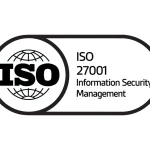A study from analyst IDC has reported that 92% of CEOs globally are under pressure to execute a successful digital transformation, but only 26% of European organisations have delivered a return on investment from digital investments.
Based on a survey of 382 IT professionals, IDC’s report for Rimini Street, The cloud at your pace: linking business strategy with cloud strategy, also found that 37% of respondents are prioritising IT projects to help their organisations reduce operating costs and recover from the pandemic. One-third (33%) say their IT investments have focused on projects that address areas that were revealed as weaknesses during the pandemic or projects that support the new operational requirements brought on by Covid-19.
The report says the modernisation of enterprise resource planning (ERP) systems is a key area to reevaluate. “As ERP systems are the core engine of every organisation, it is important that they support business processes optimally and integrate with other applications that are reliant on them,” the report’s author wrote.
According to IDC, European organisations have often invested significantly in customisation to support their business processes and provide competitive advantage that they want to continue to leverage. “About 40% of SAP customers in Europe are not considering migration to S/4 as they are satisfied with the current environment,” said Carla Arend, a senior program director at IDC, and co-author of the report.
Arend said some organisations decide to move their core ERP systems onto a modern cloud infrastructure for agility and flexibility. This involves lifting and shifting the application to a public cloud infrastructure-as-a-service (IaaS) platform.
She added that some organisations are swapping out some applications such as human resources, customer relationship management and marketing and replacing them with standard SaaS products. They then need to ensure integration of data and processes with the core ERP system, she said.
Another option for some organisations, said Arend, is to build new innovative services on top of their ERP systems using low-code/no-code platforms and cloud-native developed applications.
Building new functionality around the core ERP system can help to extend the life of older applications, enabling businesses to take advantage of new technologies, she said. This approach helps organisations innovate around a legacy IT system that is considered too mission-critical to replace.
Hari Candadai, global vice-president, thought leadership and research at Rimini Street, said: “Customers with legacy systems can absolutely keep up with innovation if they execute a strategy of optimising the complex core systems so they can divert resources to innovating around the edges where differentiation and competitive advantage happen.
“This means that faster, cheaper, fit-for-purpose technology is adopted where innovation matters – the business priorities. It also means that core legacy systems can operate for many years in a near ‘as is’ state with lower support and service costs because the rapidly and frequently changing solutions happen outside the core.”














